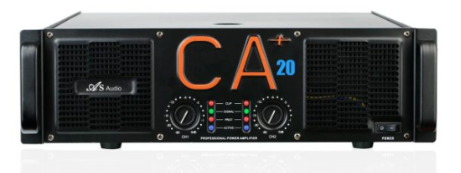Introduction
So, you’re in the market for a new CA 20 amplifier? Whether you’re a seasoned musician, an audio enthusiast, or someone looking to enhance their home entertainment system, finding a suitable amplifier can be daunting. But fear not—I’m here to guide you through the maze of options and help you land on the perfect amplifier for your needs.
Understanding ca 20 amplifiers
Before diving into the nitty-gritty of amplifier selection, let’s ensure we’re all on the same page about what a CA 20 amplifier does. At its core, an amplifier takes a weak audio signal and boosts it to a level that can power speakers. There are various types of CA 20 amplifiers, including tube, solid-state, and hybrid models, each with unique sonic characteristics. Matching your amplifier to your speakers is crucial to ensure optimal performance and prevent damage.
Determining Your Needs
Determining your specific needs is the first step in choosing the perfect CA 20 amplifier. Are you setting up a home audio system, outfitting a recording studio, or gearing up for live performances? Knowing how you plan to use your CA 20 amplifier will help narrow down your options. Budget is another crucial factor, as 20 amplifiers can range from budget-friendly to wallet-busting. Additionally, think about future-proofing your purchase by considering any potential upgrades or expansions down the line.
Power Requirements
One of the most confusing aspects of amplifier selection is understanding power ratings. Wattage is often touted as a crucial factor, but it’s not the only thing that matters. Matching amplifier power to your speakers’ requirements is critical to achieving optimal performance without risking damage. Don’t fall into the trap of thinking that higher wattage always equals better sound—quality matters as much as quantity.
Sound Quality and Tone
It all comes down to sound quality. Different amplifiers offer tonal characteristics, from warm and vintage to bright and modern. Finding the right balance for your preferences is essential. Consider harmonic distortion, frequency response, and dynamic range to ensure you get the desired sound.
Features and Connectivity
Pay attention to the importance of features and connectivity options when shopping for an amplifier. Think about your specific needs—do you require multiple inputs for various audio sources? How about built-in EQ or effects loops? Consider whether Bluetooth or Wi-Fi connectivity is a must-have feature for you in this age of wireless everything.
Size and Portability
Another practical consideration is the amplifier’s physical size and portability. If you’re a gigging musician, you’ll want something compact and lightweight that won’t break your back on the way to the venue. On the other hand, if space isn’t an issue, you might prioritize performance over portability.
Brand Reputation and Reliability
Investing in an amplifier is worth doing homework on the brand’s reputation and reliability. Read reviews, scour forums, and ask fellow musicians or audio enthusiasts for recommendations. A reputable brand with a track record of quality and customer satisfaction is worth its weight in gold.
Testing and Comparing Amplifiers
While online research is helpful, there’s no substitute for hands-on testing. Visit audio stores to audition amplifiers in person and compare their sound quality and features. Take your time and trust your ears—what sounds good to someone else might not sound good.
Long-Term Considerations
As you narrow down your options, think about the long-term implications of your decision. Is the amplifier upgradable or customizable to suit your evolving needs? Consider the resale value of the amplifier should you decide to upgrade in the future. And remember to factor in warranty coverage and maintenance requirements.
Seeking Expert Advice
If you’re overwhelmed by the many options available, seek expert advice. Consult with audio professionals or fellow enthusiasts who can offer personalized recommendations based on your requirements. Online communities and forums can also be valuable resources for gathering insights and opinions.
Personal Preferences and Subjectivity
It’s important to remember that amplifier choice is ultimately subjective. What works for one person may not work for another, and that’s okay. Trust your ears and instincts, and don’t be swayed by hype or marketing gimmicks. The goal is to find an amplifier that brings you joy and satisfaction every time you crank up the volume.
Final Decision Making
After thorough research and testing, it’s time to make your final decision. Narrow your options based on your needs, preferences, and budget constraints. Weigh the pros and cons of each amplifier carefully, and feel free to sleep on it if you need clarification. When you’re ready, pull the trigger with confidence, knowing you’ve done your due diligence.
Installation and Setup
Congratulations, you’ve chosen the perfect amplifier for your needs! Now, it’s time to set it up and enjoy the fruits of your labor. Correctly connect your amplifier to your speakers and audio sources, and adjust settings for optimal performance. If you encounter any issues along the way, refer to the user manual or seek assistance from the manufacturer.
Conclusion
Choosing the perfect amplifier may seem daunting, but armed with the proper knowledge and guidance, it can be a rewarding experience. By understanding your needs, researching your options, and trusting your instincts, you can find an amplifier that brings your audio dreams to life. So go forth, dear reader, and let the music play!



